El pasado 23 de diciembre de 2025, el FLAR realizó el desembolso de un crédito de apoyo a la balanza de pagos de Ecuador por USD 500 millones, aprobado por su Directorio en la reunión ordinaria CXIV.

This sub content title section you can add you real content.

El pasado 23 de diciembre de 2025, el FLAR realizó el desembolso de un crédito de apoyo a la balanza de pagos de Ecuador por USD 500 millones, aprobado por su Directorio en la reunión ordinaria CXIV.
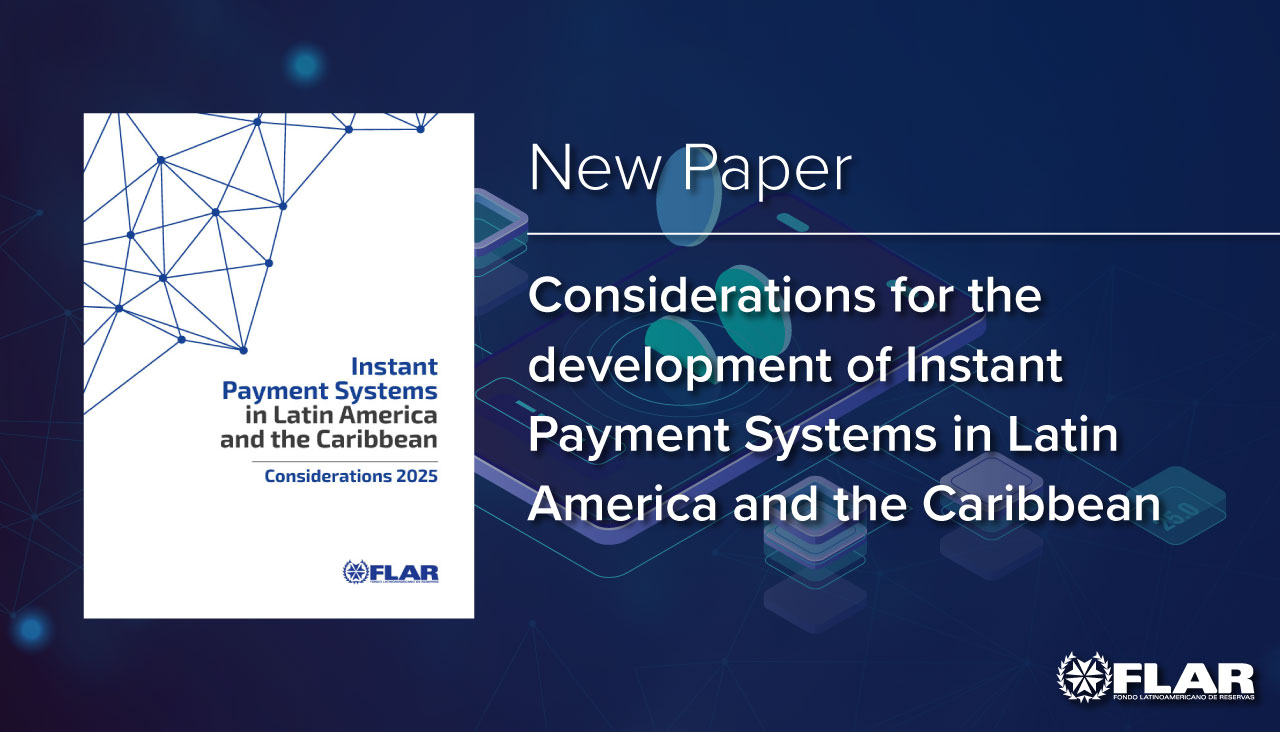
The rise of digitalization has transformed financial systems through the adoption of instant payment systems (IPS), which enable real-time fund transfers and promote efficiency and financial inclusion. In Latin America and the Caribbean, the development of these systems varies across countries due to regulatory and technological challenges. To strengthen them, FLAR promotes cooperation among central banks and has developed a regional technical guide outlining key challenges, opportunities, and strategic guidelines to foster greater interoperability and financial integration in the region.
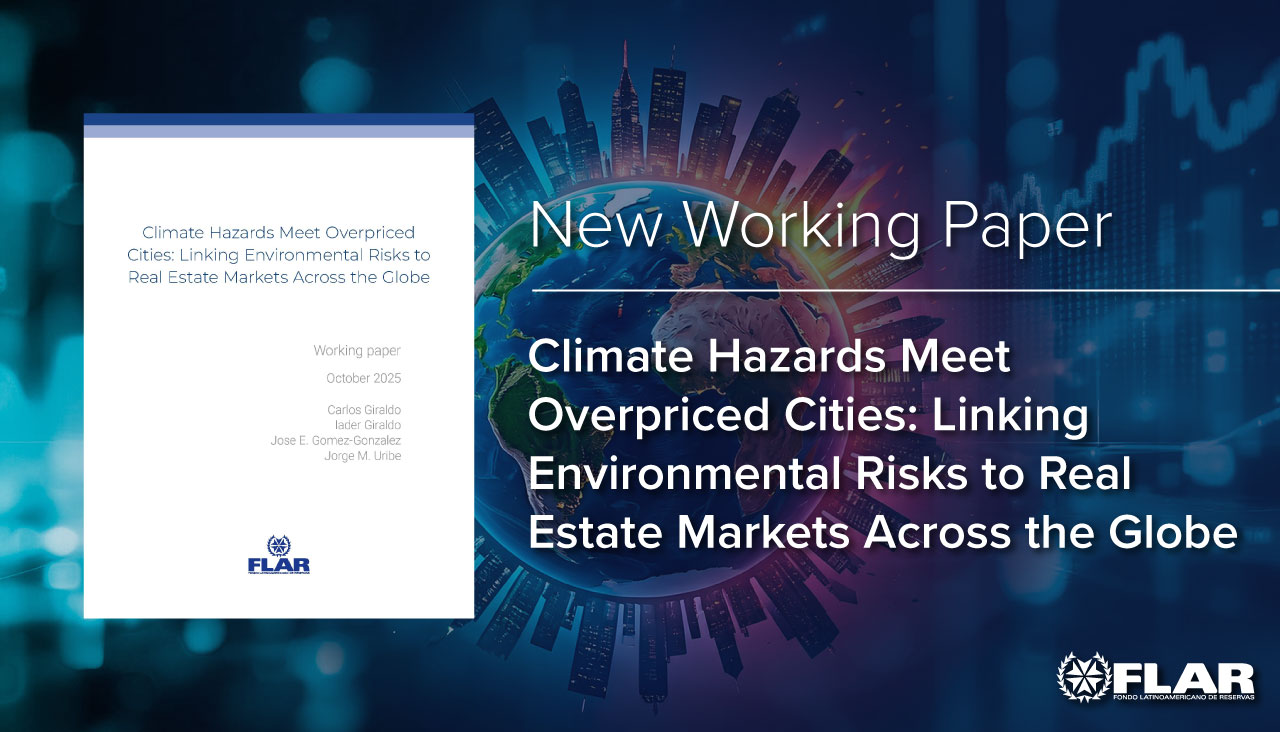
The determinants of the price-to-income (PTI) ratio in urban real estate markets have been extensively examined in the literature (e.g., Himmelberg et al., 2005; Duprey & Klaus, 2022; Kuebler & Rugh, 2013; André et al., 2014; Pavlidis et al., 2016; Wu et al., 2012). Most studies focus on issues related to credit conditions and systemic risk, treating the PTI ratio primarily as a measure of housing affordability.
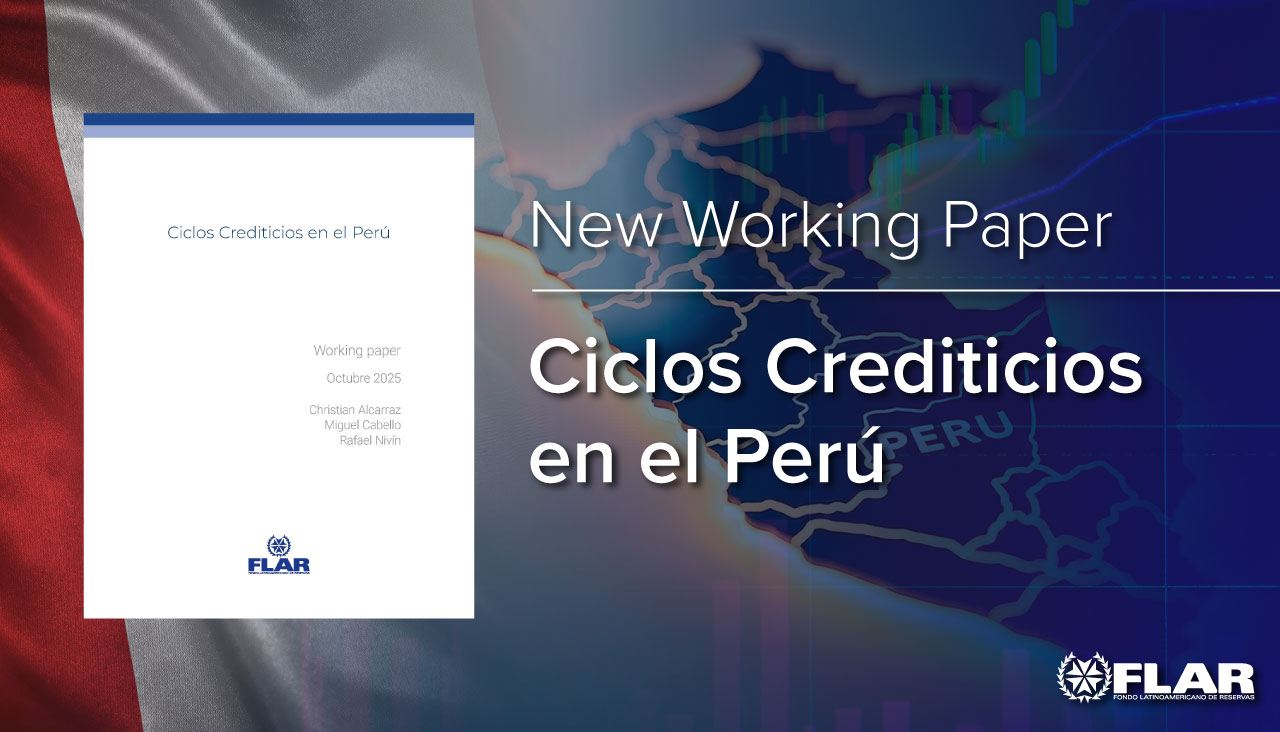
Understanding the cyclical movements of macro-financial variables, such as credit, is relevant not only to identify whether the financial sector is experiencing overheating, but also to design macroprudential measures aimed at preventing extreme fluctuations in the financial cycle. In this study, we focus on measuring the cyclical changes of different credit indicators—both in logarithmic terms and as ratios to GDP—as well as by type of credit and currency.
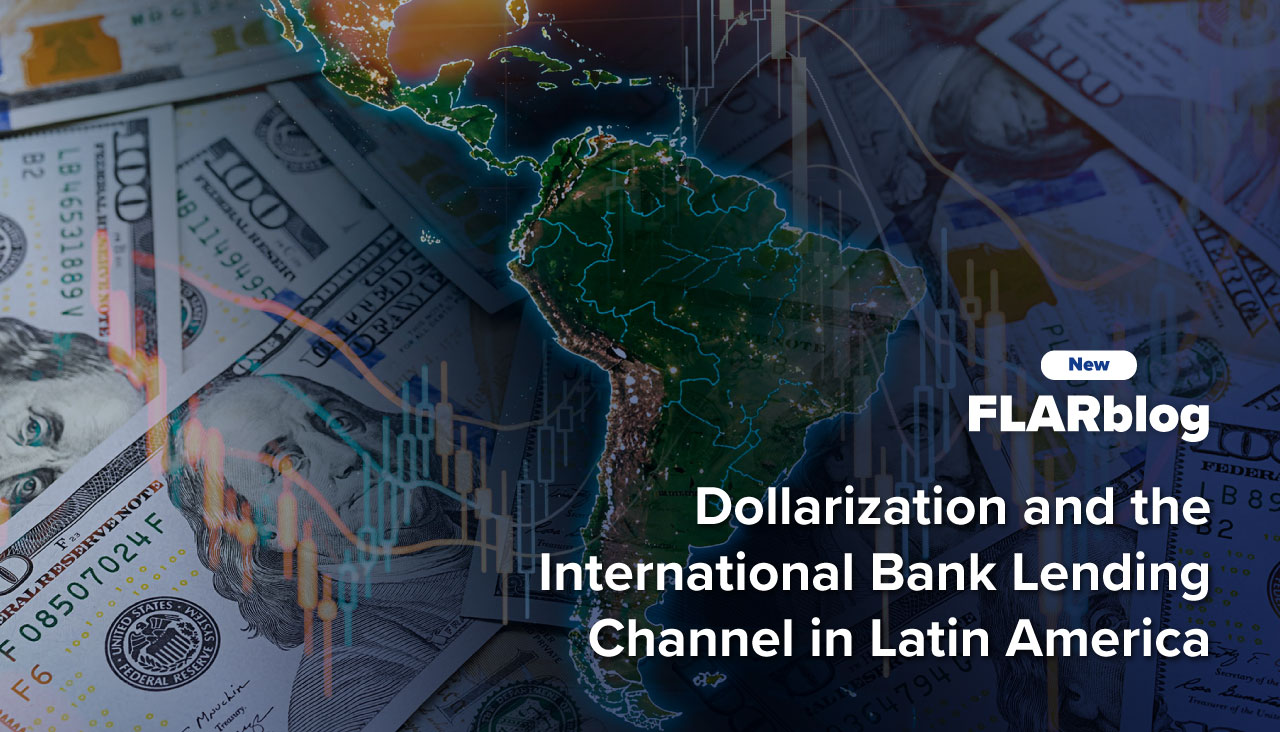
While the bank lending channel has been widely studied in the economic literature, its implications for dollarized economies have received little attention. Our recent research focuses on this type of economy to evaluate two hypotheses: First, does an international lending channel operate within the dollarized economies of Latin America? Second, how does the degree of dollarization influence the strength of this transmission mechanism?
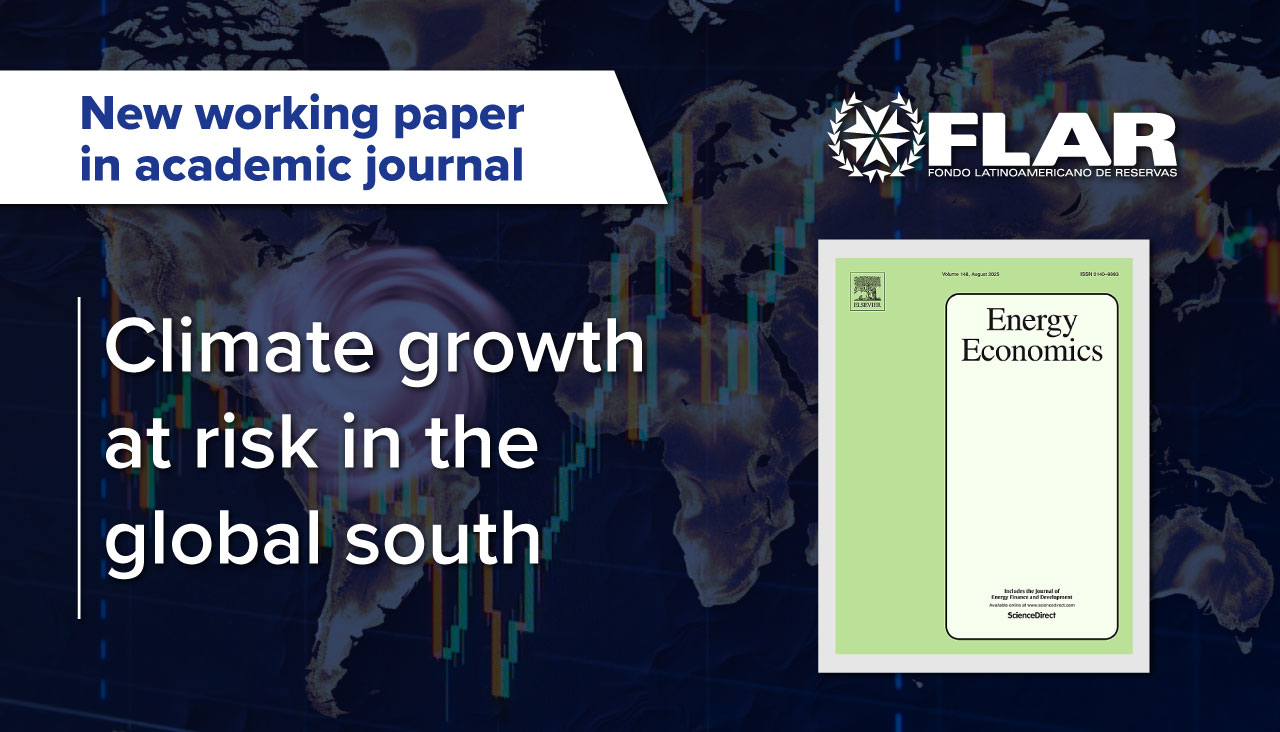
We are pleased to share a new publication in the academic journal Energy Economics, this time featuring the research “Climate Growth at Risk in the Global South”, authored by Carlos Giraldo, Iader Giraldo Salazar, Jose E. Gomez-Gonzalez, and Jorge M. Uribe.
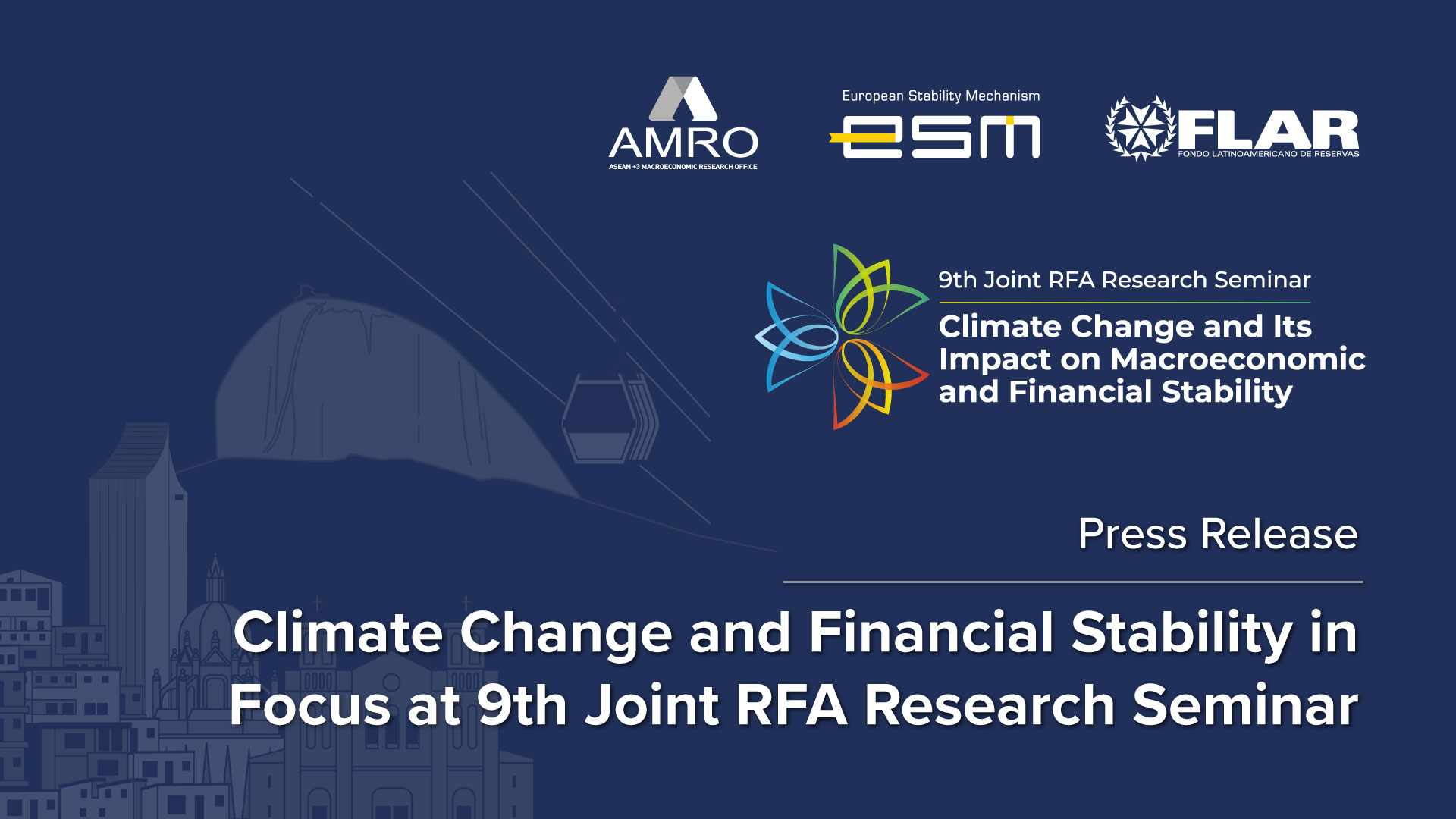
On May 16, 2025, the 9th Joint RFA Research Seminar took place in Medellín, co-organized by FLAR, AMRO, and ESM.
The event brought together experts from international financial organizations, central banks, finance ministries, and academia to discuss the impact of climate change on macroeconomic stability, financial system resilience, and public finances and sovereign risk.
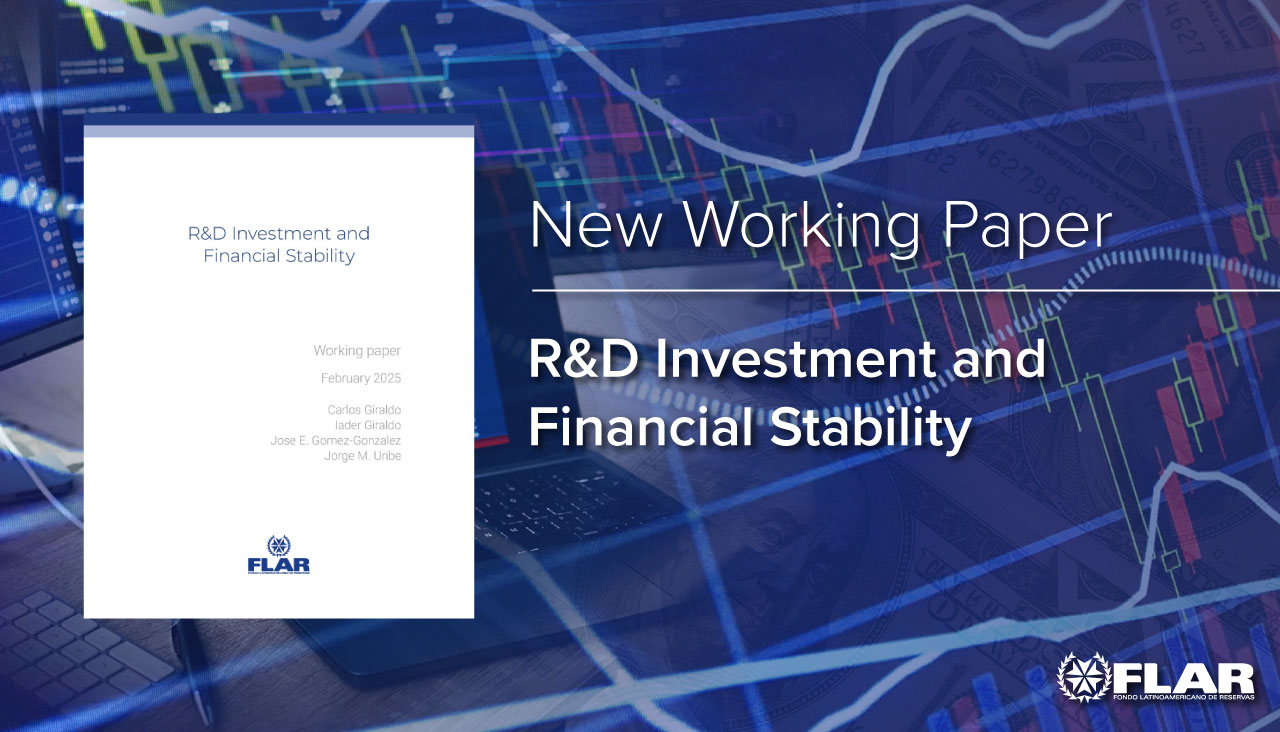
We examine the relationship between a country’s level of investment in research and development (R&D) and financial stability. Our findings emphasize the importance of a balanced fiscal strategy that reconciles the urgency of short-term fiscal consolidation with the pursuit of long-term economic growth and productivity.
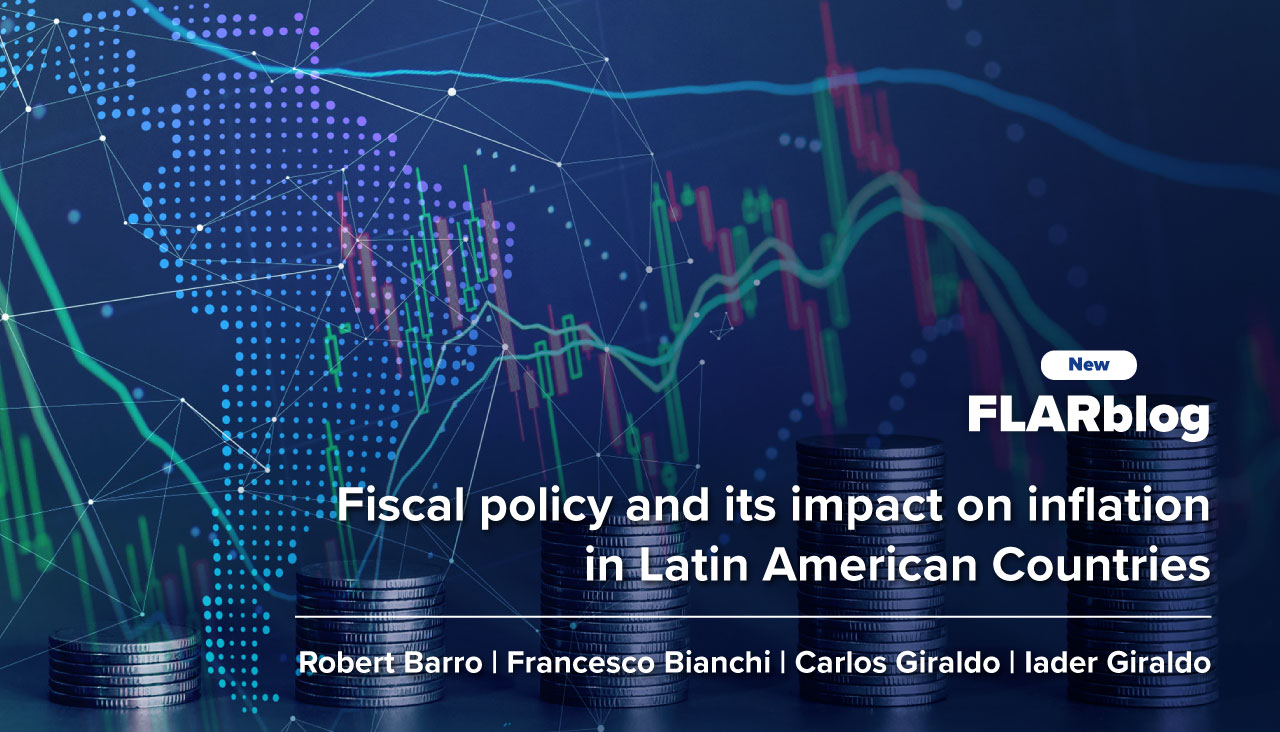
Fiscal policy can significantly impact the rate of inflation in Latin American countries. Governments in the region have historically implemented procyclical fiscal policies, increasing spending and borrowing during periods of economic growth and tightening policies during recessions.
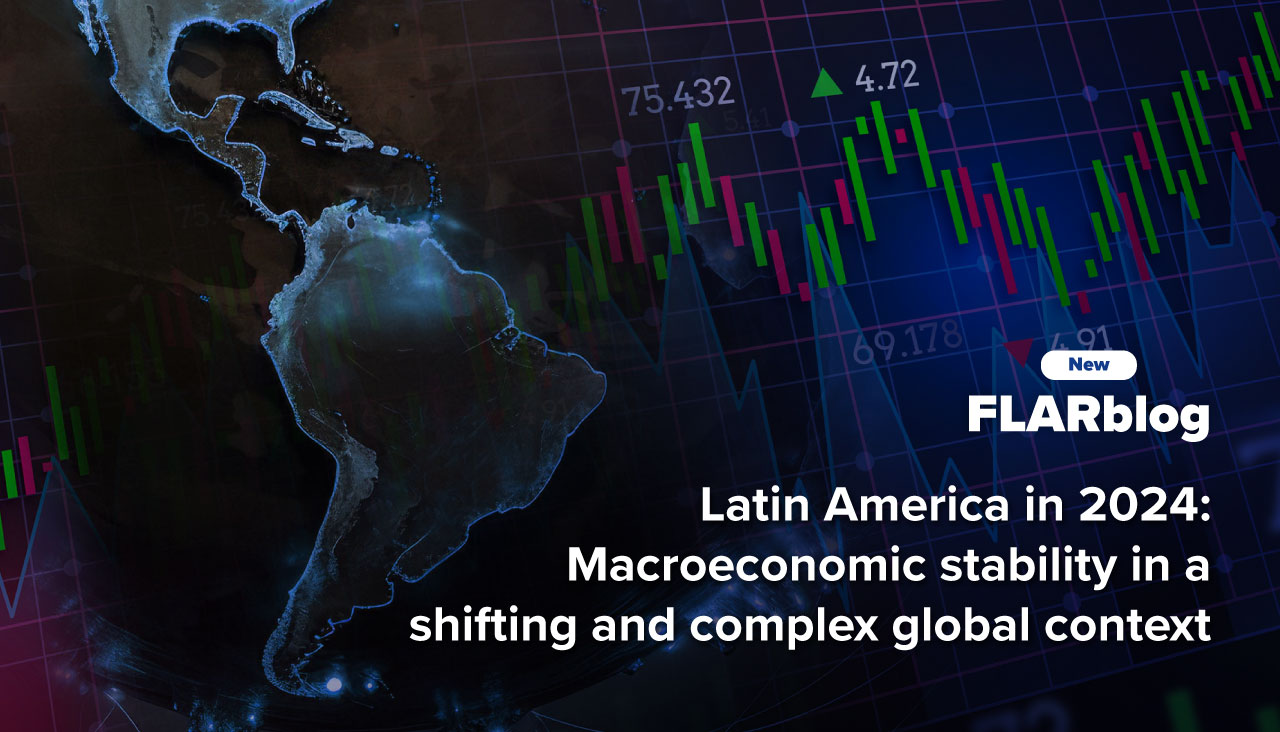
Latin America faced a mixed economic outlook in 2024 amid a slight global economic slowdown driven by geopolitical tensions and uneven performance among major global economies. The region’s economic growth outpaced initial projections (2.3% compared to 1.8% forecasted), supported by resilient external capital flows, robust financial systems, and monetary policies that helped bring inflation closer to target levels.